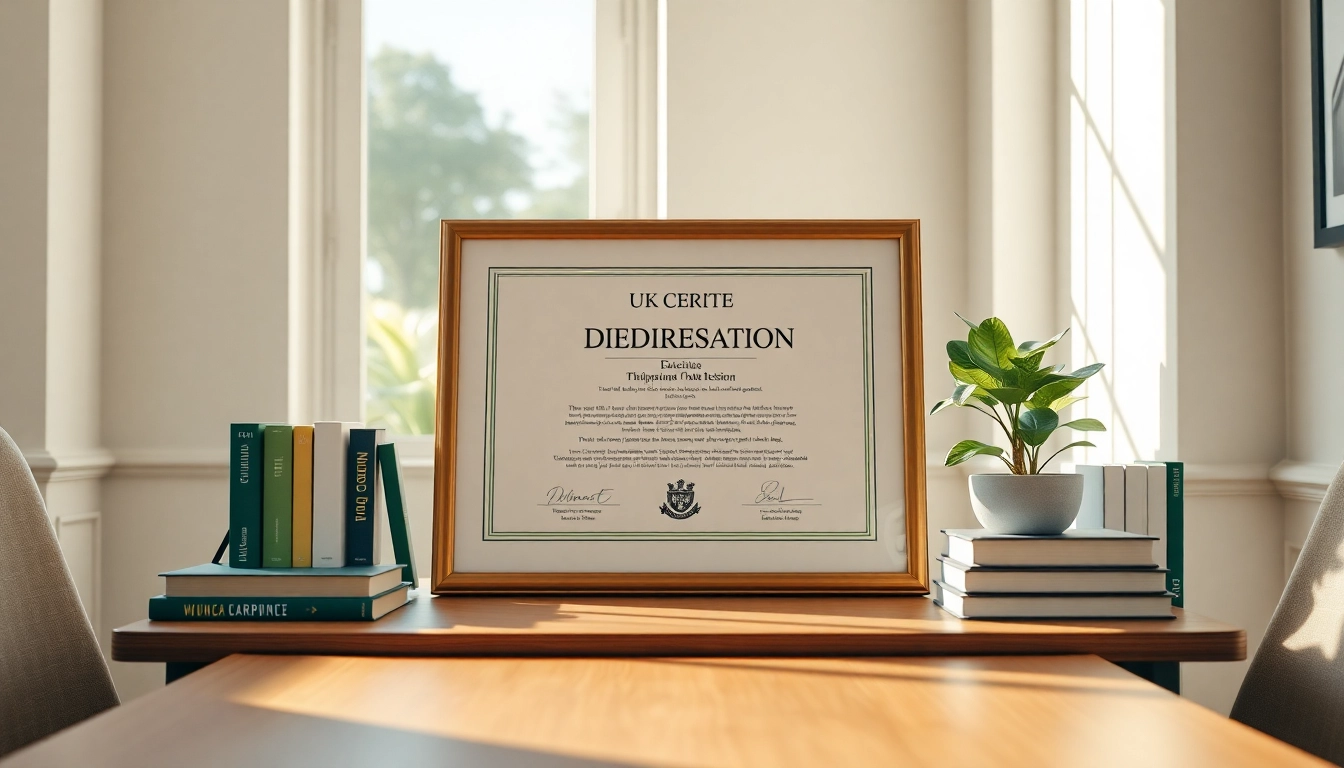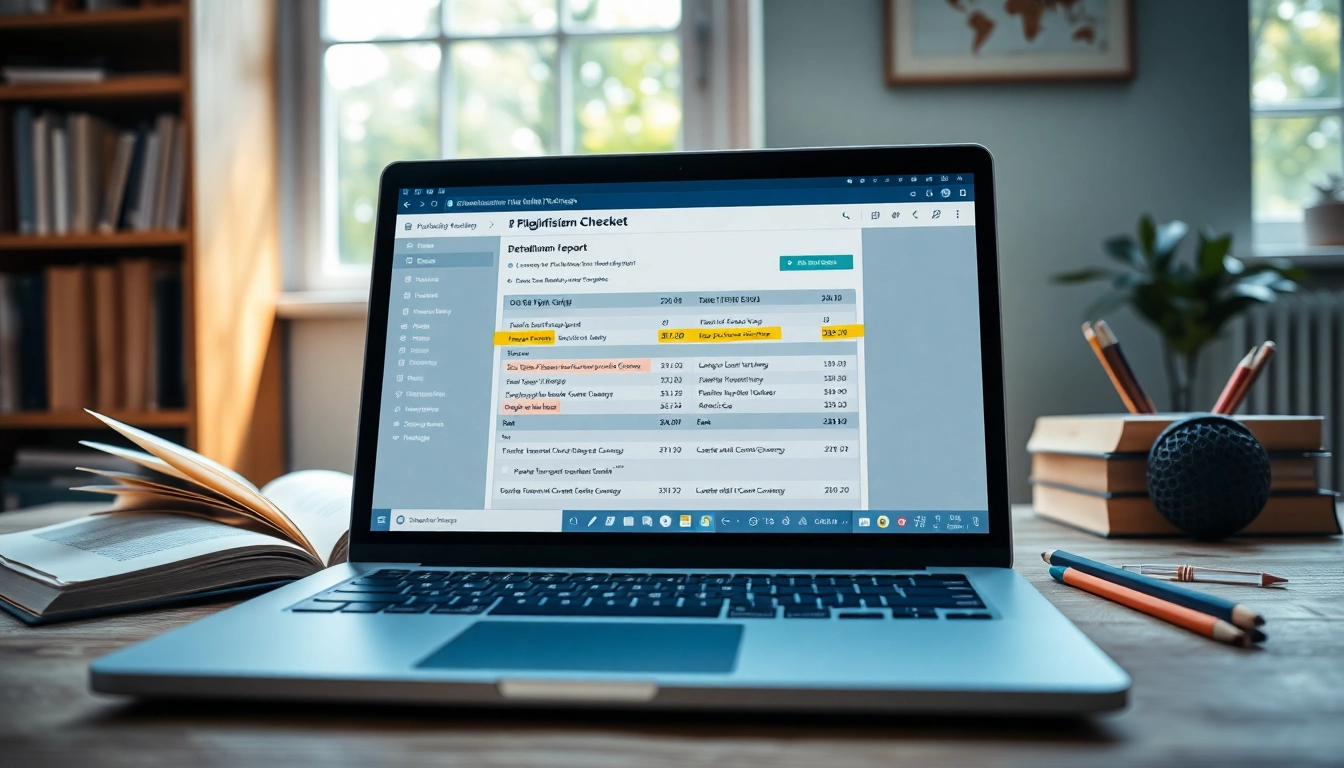
Understanding the Level 4 Counselling Framework
The Level 4 Diploma in Therapeutic Counselling marks a significant milestone for aspiring professional counsellors in the UK. This comprehensive qualification provides students with a robust foundation in therapeutic practices and principles, equipping them with the skills needed to support clients through diverse challenges. As you embark on this educational journey, comprehensive answers to the Level 4 counselling tasks will enhance your understanding and effectiveness in practice. In this article, we will explore the key elements of the Level 4 framework, the content of each unit, and strategies for overcoming challenges in your studies. You can also find detailed Level 4 counselling answers that support your learning process.
Overview of the Level 4 Diploma
The Level 4 Diploma in Therapeutic Counselling is typically designed for those who have already completed introductory courses in counselling and are looking to deepen their knowledge and practice. This qualification is recognized across the UK and serves as a critical stepping stone for working as a professional counsellor. The diploma usually comprises seven units that cover various aspects of counselling practice, including theoretical knowledge, practical skills, and ethical considerations.
Importance of the Level 4 Qualification
Achieving a Level 4 qualification is essential for anyone seeking to work in counselling within a professional setting. It provides the necessary theoretical knowledge and hands-on experience required to engage empathetically and effectively with clients. Furthermore, employers in the mental health and well-being sectors recognize this qualification as evidence of a candidate’s training and expertise. In a field where understanding and applying therapeutic techniques can impact lives, a Level 4 Diploma establishes a solid baseline of competence.
Key Learning Objectives and Skills
The key learning objectives of the Level 4 Diploma encompass a variety of skills necessary for effective practice in a therapeutic context. Candidates will learn to:
- Understand and apply counselling theories.
- Develop self-awareness and interpersonal skills.
- Utilize specific therapeutic techniques and methods.
- Assess client needs and design appropriate interventions.
- Maintain ethical and professional standards in counselling.
This holistic approach prepares students to manage client relationships and navigate complex ethical dilemmas, which are common in therapeutic environments.
Examining Each Unit of the Diploma
Detailed Breakdown of Unit 1 to 7
The Level 4 Diploma consists of several units, each focusing on distinct aspects of counselling practice. Here’s a more detailed overview:
- Unit 1: Professional Practice – Focuses on the ethical frameworks and professional responsibilities required by counsellors.
- Unit 2: Theory and Practice – Introduces various counselling theories like Cognitive Behavioral Therapy (CBT) and Humanistic approaches.
- Unit 3: Client Work and Therapeutic Relationships – Emphasizes the importance of building trust and rapport with clients.
- Unit 4: Working with Issues of Diversity – Covers approaches to counselling diverse client populations.
- Unit 5: Self-Awareness for Counsellors – Encourages students to explore their biases and how these can affect therapy outcomes.
- Unit 6: Supporting Clients in Crisis – Equips students with techniques to assist clients in immediate distress.
- Unit 7: Reflective Practice in Counselling – Highlights the significance of ongoing personal reflection and supervision throughout a counsellor’s career.
Core Competencies Developed Through Each Unit
Each unit contributes to the development of core competencies necessary for effective counselling. For example:
- Through Unit 1, students gain clarity on professional boundaries and ethical considerations.
- Unit 2 sharpens analytical skills through understanding theoretical frameworks applicable in practice.
- Unit 3 fosters empathy and active listening—key components in establishing therapeutic relationships.
These competencies not only enhance a counsellor’s toolkit but also ensure an ethical, respectful, and effective approach to client work.
Real-World Applications of Skills Acquired
The skills gained from the Level 4 Diploma have vast real-world applications. Graduates often find employment in various settings, including:
- Private counselling practices
- Community health organizations
- Schools and educational environments
- Corporate settings, providing employee assistance
- Non-profit organizations supporting mental health initiatives
In these roles, counsellors apply their training to assessments, intervention planning, and providing ongoing support to clients facing myriad issues—including anxiety, depression, relationship challenges, and trauma.
Challenges and Success Strategies
Common Challenges Faced by Students
As with any educational journey, students pursuing the Level 4 Diploma may encounter several challenges, including:
- Managing the emotional toll that counselling work can take.
- Balancing academic commitments with personal life and work responsibilities.
- Understanding complex theoretical concepts and applying them in practical scenarios.
Comprehending the nature of these challenges is vital for students to anticipate possible roadblocks and devise effective strategies to overcome them.
Effective Study Techniques for Unit Mastery
To excel in the Level 4 Diploma, students should consider implementing various effective study techniques, such as:
- Active Engagement: Participate in class discussions and practical exercises to enhance retention.
- Study Groups: Forming study groups can facilitate shared learning experiences and deepen understanding.
- Utilizing Multimedia Resources: Leverage videos, podcasts, and online articles to reinforce classroom learning.
These strategies can increase confidence and competency as students prepare for assessments and real-world applications.
Expert Tips for Achieving High Marks
For those aiming for distinction in their Level 4 assessments, consider the following expert tips:
- Start preparing early: Overview your units ahead of time to allow adequate study periods.
- Seek feedback: Engaging with peers and instructors provides insight into areas needing improvement.
- Utilize reflective journaling: Regularly documenting your thoughts and experiences encourages self-awareness and can tremendously aid your learning process.
Combining these tactics with disciplined study habits can significantly enhance performance on assignments and examinations.
Utilizing Resources for Level 4 Counselling Answers
Recommended Books and Online Materials
For effective study and understanding of the Level 4 curriculum, several recommended resources can be valuable:
- Textbooks: “The Handbook of Counselling Psychology” is a widely recognized resource that offers insights into therapeutic techniques.
- Online Courses: Platforms such as Coursera or Udemy provide supplementary training that can reinforce learning objectives.
- Journals: Subscribing to journals like “Counselling and Psychotherapy Research” keeps students abreast of current research and practices.
These resources can significantly aid students in comprehending complex concepts and reinforcing their knowledge base.
Engaging with Study Groups and Forums
Engaging with peers through study groups or online forums can enhance the learning experience. By sharing ideas and discussing challenging concepts, students can:
- Gain diverse perspectives on theoretical concepts.
- Build a support network that fosters motivation.
- Access various study materials shared by others.
This collaborative approach not only helps reinforce knowledge but also allows for relationship building, which is vital in the counselling profession.
Accessing Past Papers and Sample Answers
Making use of past examination papers and sample answers is an invaluable strategy for preparing for assessments. This practice allows students to:
- Understand the structure and format of exams.
- Familiarize themselves with common assignments and expected answers.
- Identify frequently tested topics and areas requiring deeper understanding.
Utilizing these resources can build confidence as students approach their assessments, ensuring they are well-prepared and informed about examination techniques.
The Future of Your Counselling Career
Pathways After Completing Level 4
Upon completion of the Level 4 Diploma in Therapeutic Counselling, numerous career pathways become available. Graduates may choose to:
- Enter directly into practice as a counselling professional
- Pursue further education, such as a Level 5 or Level 6 diploma
- Specialize in areas such as child counselling, trauma, or addiction services
By leveling up their qualifications or specializing, graduates can expand job opportunities and take on more complex counselling roles.
Further Education and Specialization Options
Many practitioners find that further education opens doors to specialized fields within the counselling domain. Courses in advanced therapeutic techniques or specific client populations (e.g., children, adolescents, or trauma survivors) can enhance their credentials. Postgraduate degrees in counselling or psychology can also provide more in-depth knowledge and improved career prospects.
Networking and Professional Development Strategies
Networking is crucial for any counselling professional looking to advance their career. Students can engage in professional organizations, attend workshops, or join forums focused on counselling practice. These activities help build connections, foster mentorship opportunities, and grant access to valuable resources in the field. Additionally, regular professional development through workshops or refresher courses ensures that practitioners remain up-to-date within a continually evolving landscape.







